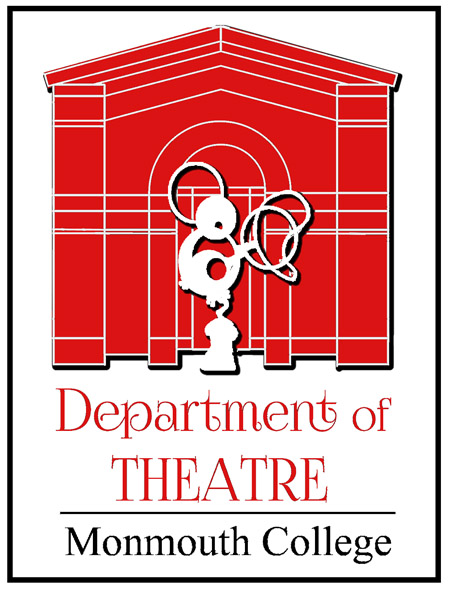Well, well, well: MC
performing sci-fi classic ‘War of the Worlds’
MONMOUTH, Ill. —Did Monmouth College go to the Wells once
too often?
The college’s Crimson Masque theater group kicks off the
2009 spring theater season Feb. 26 with “A Night at the
Mercury Theater: War of the Worlds.” The show features,
among others, the 1938 radio drama by Orson Welles (an
adaptation of H. G. Wells’ 1898 classic science fiction
novel) that literally convinced his unsuspecting radio
audience that the United States was under attack by
Martians. Performances in the college’s
appropriately-named Wells Theater are Feb. 26 through 28
at 7:30 p.m., with a matinee performance on March 1 at 2
p.m.
Tickets are $4 for MC students, faculty and staff; $5 for
other students and senior citizens and $6 for adults. They
may be reserved by phone at 309-457-2374 or by e-mail at
theater@monm.edu.
The production on March 1 will be preceded at 1 p.m. by a
one-hour discussion. Communication lecturer Chris Goble
will discuss the golden age of radio drama, and Joe
Angotti, visiting distinguished professor of
communication, will address the role and responsibility of
the media in times of national crises. Angotti is a former
executive producer of NBC News.
Prior to the recreation of the “War of the Worlds”
broadcast, the Crimson Masque performers will bring to
life two other legendary radio broadcasts from the same
era, starting with a short episode from Buck Rogers,
followed by a 30-minute piece entitled “Zero Hour,”
written by Ray Bradbury.
Although the performances are recreations of radio
broadcasts from what has become known as the Golden Age of
Radio, director Janeve West, professor of communication
and Theatre, says the productions “will also be
intense for both the eyes and the ears.” The productions
will recreate 1930s and 1940s radio Foley (a technical
process by which sounds are created or altered for use in
a film, video or other electronically produced work) and
are staged with authentic microphones.
West says her approach to tackling these classic radio
dramas on stage has been to explore “the tensions and
anxieties of the U.S. in the 1930s and 1940s revealed
through headlines and news reports (and in a nation’s
desire to hide behind Space Age superheroes). These
tensions, I and others contend, resulted in the actual
panic during the airing of ‘War of the Worlds.’ I contend
that Wells purposefully and knowingly antagonized an
already tense population for the sake of art.”
The original broadcast, aired the day before Halloween in
1938, was directed by and featured Orson Welles as he
adapted the science fiction novel “The War of the Worlds”
about a Martian invasion of Earth. Welles, however, made
one important change: his play was written and performed
so it would sound like a news broadcast, a technique that
was intended to heighten the dramatic effect.
West says the unique trio of on-stage radio broadcasts
seeks to revisit the national anxieties underlying the
U.S. when they were originally aired.
“Just after the stock market crash, and looking toward
World War II, those national, political, economic and
social anxieties urged our nation to turn toward heroes
like Buck Rogers,” she said. “They also caused us to
rethink our own personal safety, and that of the children
reflected in Bradbury’s ‘Zero Hour.’ Finally, our fear of
invasion and anxiety over the unknown is seen not only in
‘The War of the Worlds,’ but in the very real panic that
occurred during the airing of this production.
“Meanwhile,” she continued, “I have stretched a bit of my
own artistic license as a director by authoring, compiling
and choreographing moments within the production that
reflect this tension and anxiety.”
A number of faculty and staff on campus have contributed
to the recreation of authentic equipment from the era. An
electronic device called a theremin has been built and
will be used to produce an eerie sound. A Van de Graaff
generator, which is an electrostatic machine that uses a
moving belt to accumulate very high electrostatically
stable voltages on a hollow metal glove, will also create
unique sound effects.
Released by the Office of College Communications
Barry McNamara,
Associate Director of College Communications
Phone: 309-457-2117
Fax: 309-457-2330


![]()
